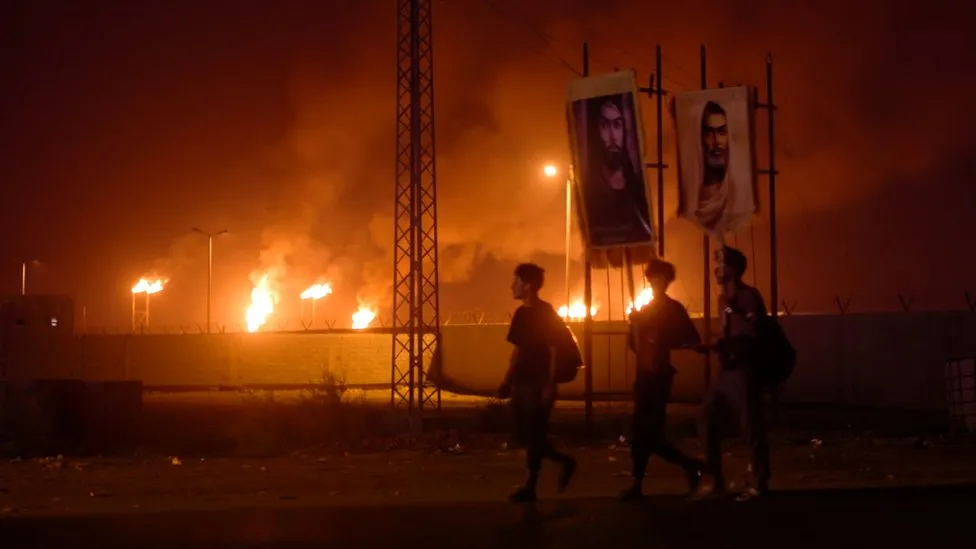Toxic gas putting millions at risk in Middle East

Toxic gas putting millions at risk in Middle East burning of waste gas during oil drilling – is taking place across the Gulf, including by COP28 hosts the United Arab Emirates.
Research suggests pollution is spreading hundreds of miles, worsening air quality throughout the region.
In conjunction with the UN’s climate summit, the UAE hosts COP28 on Thursday.
Despite the fact that flaring was banned in the UAE 20 years ago, images show it continues, despite the potential health consequences for its residents and those of neighbouring countries.
The region has been affected by gases spreading hundreds of kilometers across it, according to analysis.
In addition to Iraq, Iran and Kuwait, pollution from wells was also examined in the study. The countries involved either declined to comment or did not respond.
Flaring sites managed by BP, Shell, and other oil companies are working to reduce the practice.
Leaked documents revealed how the UAE planned to use UN climate talks as an opportunity to strike oil and gas deals.
The UN Special Rapporteur on human rights and the environment, David R. Boyd, found this “very disturbing.” Big oil companies and Middle Eastern governments are violating the human rights of millions of people by failing to address air pollution.
The Big Oil industry and petrostates continue to operate with total impunity and no accountability in the face of massive human suffering.”
The oil giants’ toxic air pollution is spreading hundreds of kilometers, putting millions of people at risk in Dubai, Abu Dhabi, Kuwait, Iran, and Iraq.
The practice of flaring is avoidable, and the gas can be captured and used to generate electricity or heat homes – yet it persists around the world.
Global flaring is also a major source of the planet-warming greenhouse gases CO2 and methane.
